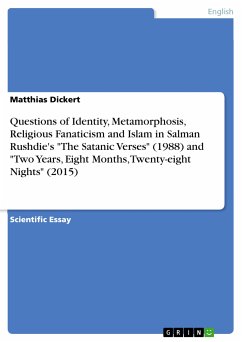Seminar paper from the year 2005 in the subject English Language and Literature Studies - Literature, grade: 1,7, University of Regensburg (Institut für Anglistik), course: Proseminar Black Britain, language: English, abstract: In order to analyse the occurrence of racism and racial prejudices in pieces of black British writing, it is important to define these terms at first individually and then in their relation to each other. To subsume immigrants of all ethnic minorities under a generic term the expression 'black' emerged in the 1960s and 70s. This term carried significant meaning for a huge group of immigrants as Kobena Merces put it: When various peoples - of Asian, African, and Caribbean descent - interpellated themselves and each other as /black/ they invoked a collective identity predicated on political and not biological similarities. In other words, the naturalized connotations of the term /black/ were disarticulated out of the dominant codes of racial discourse, and rearticulated as signs of alliance and solidarity among dispersed groups of people sharing common historical experience of British racism. When the term 'black' was arising the main integral parts of its meaning were founded on the common need of a homogenous group of immigrants against a white racial majority in Britain. During the 1980s, however, the meaning of this expression shifted and from then on became an important "political and aesthetic signifier, characterised by difference and alterity". Stuart Hall stated that at first "'[t]he Black Experience', as a singular and unifying framework based on the building up of identity across ethnic and cultural difference between the different communities, became 'hegemonic' over other ethnic/racial identities"3but within the following decades the stressing of significant differences within the ethnic communities became increasingly important and Paul Gilroy emphasizes the "demand [of] an alternative formulation - 'black and Asian' [...] to remind ourselves that by invoking the term 'black', we are not 'Africanizing' our struggles or declaring everybody to be the same".
Dieser Download kann aus rechtlichen Gründen nur mit Rechnungsadresse in A, B, BG, CY, CZ, D, DK, EW, E, FIN, F, GR, HR, H, IRL, I, LT, L, LR, M, NL, PL, P, R, S, SLO, SK ausgeliefert werden.









